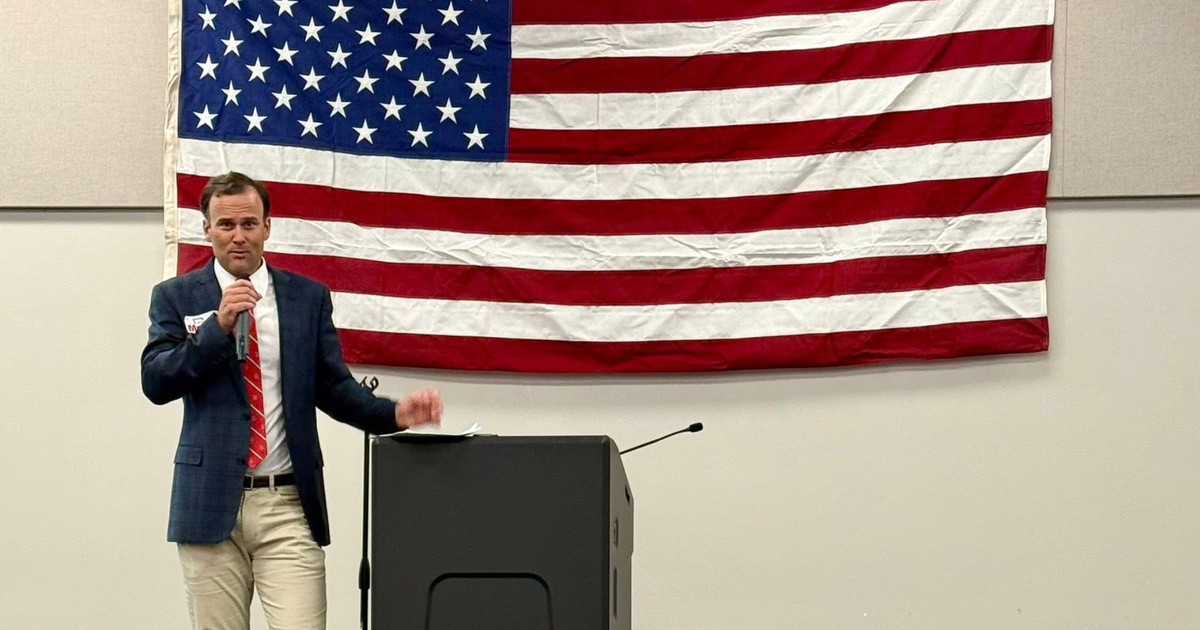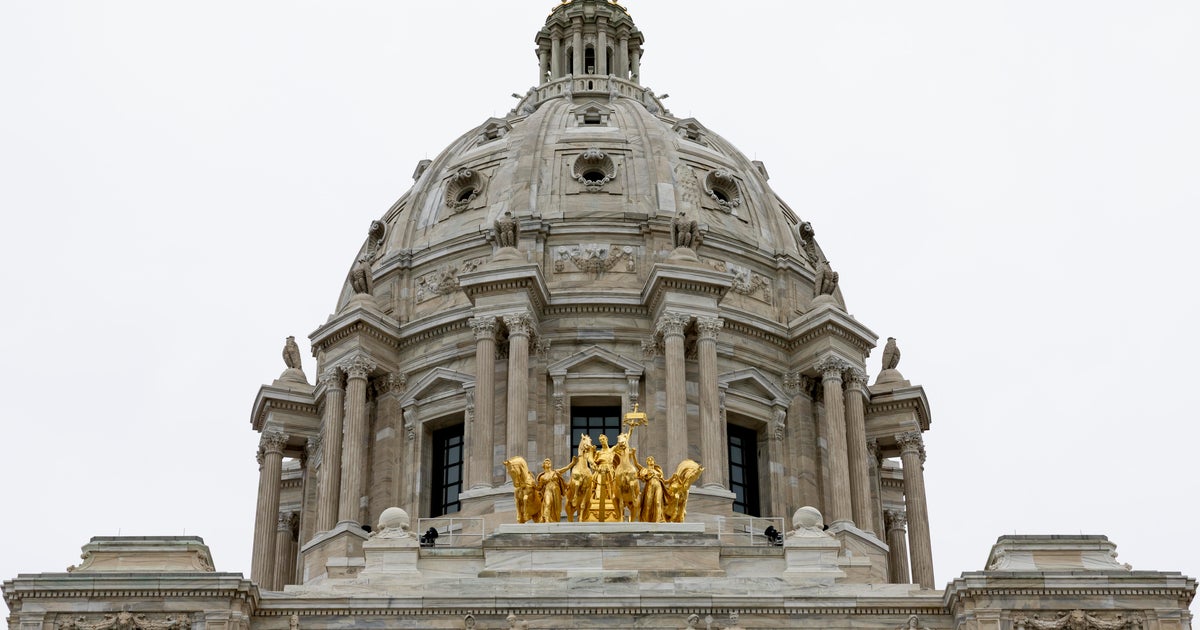Texas Senate On Track To Pass Tough Abortion Rules
AUSTIN (CBSDFW.COM/AP) — This time when the Texas Senate takes up tough new abortion restrictions, the chamber's top Republican is determined not to let anything — or anyone — derail a vote.
The Senate's leader, Lt. Gov. David Dewhurst, has scheduled a vote for Friday on the same restrictions on when, where and how women may obtain abortions in Texas that failed to become law after a Democratic filibuster and raucous protesters were able to run out the clock on an earlier special session.
Hundreds of activists from both sides of the debate lined the state Capitol's halls more than four hours before the Senate debate was scheduled to begin Friday. They were met by dozens of extra police officers guarding the gallery and holding down the hallways. For those who break the rules, the Texas Constitution gives Dewhurst the authority to jail them for up to 48 hours, no court necessary.
"We're going to have strict enforcement. If there are any demonstrations, we are going to clear the gallery," Dewhurst said Thursday. "I hope we don't get to that point but if we do, we do. This is a democracy and we will not be interrupted from doing the people's work by an unruly mob."
Some arrived as early as 4:30 a.m. Friday and the crowds continued to line up at the security station to get in the building, with many sitting on the steps and some carrying folding camping chairs — despite signs at the Capitol barring camping equipment. As has been the case for the last two weeks, anti-abortion activists wore blue and abortion rights activists wore orange, with the latter dominant among the early crowd.
Among the first two in line were anti-abortion activist Johanna McCrary of Conroe and North Texas abortion rights activist Kristi Lara of Dallas. Both of them came to the Capitol after the June 25 filibuster and have been in Austin for more than a week. More than 5,000 people swarmed the Capitol last week to oppose the bill.
"This is a civil rights issue," Lara said, comparing the efforts of abortion rights activists to demonstrations during the civil rights era.
"We will not give up the rights our mothers and grandmothers fought for," said Lara, who was wearing an orange dress with a white sash that read "Vote for Women" and had a plastic speculum, a gynecological instrument, hanging from her neck.
Every person who enters the gallery will be issued a copy of the "rules of decorum" that stipulate there can be no demonstrations or attempts to disrupt the chamber's work. Senate Sergeant-At-Arms Rick DeLeon also said Friday that no props — including speculums and coat hangers — will be allowed into the Senate gallery, per decorum rules.
McCrary, who was confident the bill will pass, said she hopes there won't be a similar outburst to the one that disrupted the previous Senate vote.
"This is America, have respect and reverence for the law. I was appalled," she said. McCrary wore an American flag vest with a sticker that read "Unborn Babies Feel Pain."
Despite the women's disagreement, both said activists had been well behaved with each other.
For Dewhurst, who lost control of the Senate to what he called an "unruly mob" during a debate on abortion two weeks ago, his political survival relies on passing House Bill 2. Once considered a formidable politician, Dewhurst bid goodbye to his Senate colleagues in 2011, expecting to easily win a U.S. Senate seat. But tea party favorite Ted Cruz painted him as a moderate, and now he has three challengers in the Republican primary.
As for the GOP, the restrictions are a top priority for the Christian conservative voters who make a majority of Texas Republican voters and want abortions banned. Democrats, however, see in the protests as an opportunity that could help them break a 20-year losing streak for statewide office.
The measures under consideration Friday mirror restrictions passed in Mississippi, Ohio, Oklahoma, Alabama, Wisconsin and Arizona, but passing them in the nation's second-most populous state would be a major victory for the anti-abortion movement.
The Texas bill would require doctors to have admitting privileges at nearby hospitals, allow abortions only in surgical centers, limit where and when women may take abortion-inducing pills, and ban abortions after 20 weeks. Only five out of 42 existing abortion clinics in Texas meet the requirements to be a surgical center, and clinic owners say they can't afford to upgrade or relocate their facilities.
Republicans insist the restrictions would guarantee better health care for women and fetuses. But critics see it as a way of regulating all Texas abortion clinics out of business.
Democrats successfully defeated the bill in the regular legislative session. During the first special session, the Senate didn't take up the bill until the final day. That allowed Fort Worth Sen. Wendy Davis to use a filibuster to delay a vote. When Republicans rushed to try to pass the bill in the session's final 15 minutes, angry protesters began shouting and screaming from the gallery. Dewhurst could only watch with frustration as a half-dozen state troopers tried to remove more than 400 people.
This time, though, Dewhurst has scheduled a vote early enough in the session that Republicans have plenty of time to pass the restrictions. Democrats see no way of stopping the bill from reaching Republican Gov. Rick Perry, for whom it is a top priority.
Reiterating that he believes the entire bill is unconstitutional, Democratic Sen. Royce West, of Dallas said "We do not have the numbers to stop it."
But Democrats hope that Republicans will have hurt themselves in the long term, that they have overreached in trying to appease their Christian conservative base and alienated suburban women, a constituency that helped President Barack Obama win re-election. Democrats have helped organize the recent protests and top lawmakers have toured the state as part of Planned Parenthood's Stand With Texas Women campaign to raise awareness about the new law.
Republicans, though, insist they are on solid ground.
The one thing both sides can agree on is that abortion-rights groups will file a federal lawsuit as soon as Perry signs the bill into law. Judges elsewhere have stopped enforcement of similar laws while they work their way to the U.S. Supreme Court.
(©2013 CBS Local Media, a division of CBS Radio Inc. All Rights Reserved. This material may not be published, broadcast, rewritten, or redistributed. The Associated Press contributed to this report.)
Also Check Out:
- Perry Announces He Will Not Seek Gubernatorial Re-Election
- Fort Worth Fireworks Show Sparks Grass Fire
- Local Mugshots
- 13-Year-Old Arrested For Murder Of Missing 5-Year-Old
- Animal Shelter Finds Abandoned Dog Nursing Pair Of Kittens
MOST VIEWED GALLERIES
- PHOTOS: Your Pet Pictures
- PHOTOS: Severe Weather Aftermath - May 16
- PHOTOS: Dallas Comic Con 2013







